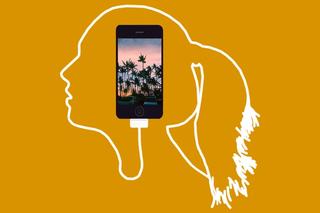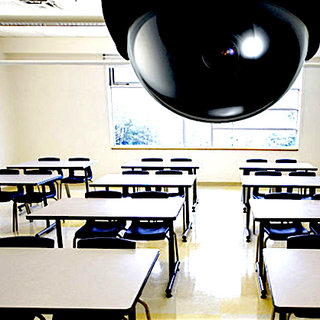
Phone‑Addicted Teenagers Are Unhappy — But Is It Because of Screen Time?
Teens with a phone ‘addiction‘ are markedly unhappier, concludes a new study led by Jean M. Twenge, a psychology professor at San Diego State University. Twenge’s team explored data from a longitudinal study that a...

Teens with a phone ‘addiction‘ are markedly unhappier, concludes a new study led by Jean M. Twenge, a psychology professor at San Diego State University.
Twenge’s team explored data from a longitudinal study that asked American eighth-, 10th-, and 12th-graders questions about how often they spent time on their phones, tablets and computers, as well as questions about their in-the-flesh social interactions and their overall happiness. On average, they found that teenagers who spent more time in front of screen devices — playing computer games, using social media, texting and video chatting — were less happy than those who invested more time in non-screen activities like sports, reading newspapers and magazines, and face-to-face social interaction.
Twenge believes teens’ screen time is driving unhappiness rather than the other way around.
“By far the largest change in teens’ lives between 2012 and 2016 was the increase in the amount of time they spent on digital media, and the subsequent decline in in-person social activities and sleep,” she said. “The advent of the smartphone is the most plausible explanation for the sudden decrease in teens’ psychological well-being.”
Much of Twenge’s research has been dedicated to making the case against screen time for young adults, whom she refers to as ‘iGen’ — children born between 1995 and 2012 who came of age alongside handheld technology. In an article for The Atlantic last September, headlined “Have Smartphones Destroyed a Generation?” she writes:
“Psychologically, however, they are more vulnerable than Millennials were: Rates of teen depression and suicide have skyrocketed since 2011. It’s not an exaggeration to describe iGen as being on the brink of the worst mental-health crisis in decades. Much of this deterioration can be traced to their phones.”
But can it, really? While Twenge’s research is interesting and worthy of consideration, critics point out her insights reveal correlations, but not causes. Twenge acknowledges as much, but says her recent findings take that into account:
“Although this study can’t show causation, several other studies have shown that more social media use leads to unhappiness, but unhappiness does not lead to more social media use,” Twenge said.
That may well be true, but that assumes teenagers only use their screen time for social media — obviously not true, given that Twenge’s study probed other device-driven activities like game-playing and text and video communication as well. It’s a leap that lends credence to Twenge’s critics, who point out that while the so-called iGen came of age with a device always at hand, more importantly, so did their parents. As Alexandra Samuel, who also disputes Twenge’s conclusion that iGen is the most depressed generation to date, argues over at JSTOR Daily:
“One year before the iPhone, only 6% of people aged 30-to-49 were on social networks. By 2009, that had leapt up to 44%: that’s absolutely explosive growth.
The Swaddle’s own exploration of distracted parenting last year examines the possible fallout.
“We get a little dopamine hit when we accomplish another email — check this, check that. And when a child is waiting by or comes into your room and it’s one of those mini-moments… [you won’t know if] they’re coming with something really important,” Catherine Steiner-Adair, a clinical and consulting psychologist at Harvard University, and author of The Big Disconnect: Protecting Childhood and Family Relationships in the Digital Age, told us last year.
To always be anticipating disaster or missed opportunities is a sure path to madness, or, at least, to helicopter parenting. But unfortunately, there’s proof that parents are missing out. A June 2015 study by AVG Technologies surveyed more than 6,000 children, ages 8 to 13, from eight countries, across four continents. Fifty-four percent of the kids thought their parents spent too much time on their phones, and 32 percent of children felt unimportant when their moms and dads were distracted by their phones. With the example set, and without the parental engagement they need, it’s little wonder that teens are unhappy and turning to their own devices.
While the nervous hand-wringing over an entire generation feels overblown, that relationship between feeling and action needs discussing — but not just in relation to teenagers. Samuel continues in the same article: “As a friend warned me when I first got pregnant, ‘children are simultaneously overwhelming and under-stimulating.’ Why wouldn’t we want to be distracted from that?” [emphasis sic] As the world increasingly shifts to a 24/7 work culture, and the price of goods and services that support a balanced home life rises, perhaps the solution lies less in curtailing teens’ screen time, and more in exploring the emotions — exhaustion, boredom, unhappiness, loneliness — that are driving our own.
In fairness, Twenge doesn’t call for a complete ban on digital devices for teens. Her recent study notes that teens who abstained from digital device use weren’t the happiest. Rather, her study found the happiest teens used digital media a little less than an hour per day. If there’s a lesson in Twenge’s finding, it’s one about moderation that applies to all of us.
Liesl Goecker is The Swaddle's managing editor.
Related


Guiding Kids’ Online Activities to Build Positive Digital Footprints
